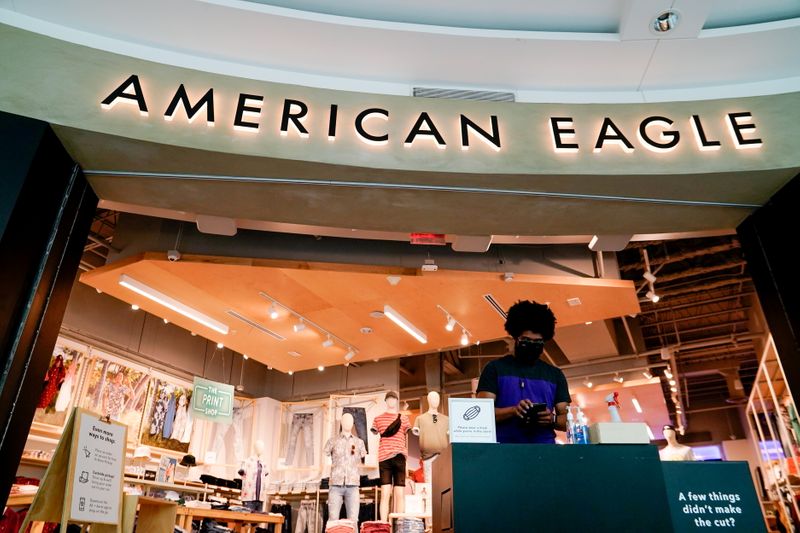US stock futures flat after Wall St drops on Trump tariffs, soft jobs data
PITTSBURGH - American Eagle Outfitters Inc. (NYSE: AEO), currently trading at $11.06 with a market capitalization of $2.12 billion, has entered into an accelerated share repurchase agreement (ASR) with Bank of America, N.A. to repurchase $200 million of its common stock. The transaction involves approximately 18.1 million shares, based on the closing price as of March 14, 2025, and will account for about 9.5% of the company’s fully diluted outstanding stock.
The ASR is a part of American Eagle’s existing share repurchase authorization, which covers a total of 68.5 million shares. Executive Chairman of the Board and Chief Executive Officer Jay Schottenstein expressed the initiative as a reflection of the company’s strong capital position and its confidence in the long-term strategic growth plan. According to InvestingPro analysis, the company maintains a healthy financial position with liquid assets exceeding short-term obligations and a current ratio of 1.53. The stock appears undervalued based on InvestingPro’s Fair Value calculations, suggesting potential upside for investors. He emphasized the program’s role in demonstrating a balanced approach to capital allocation and delivering strong returns to shareholders.
American Eagle Outfitters, a global specialty retailer trading at an attractive P/E ratio of 6.54, is known for its portfolio of apparel brands including American Eagle, Aerie, OFFL/NE by Aerie, Todd Snyder, and Unsubscribed. The company operates stores in the United States, Canada, and Mexico and has a presence in over 30 countries through licensing partnerships. Additionally, it runs a robust e-commerce business across its brands. InvestingPro data reveals the company has maintained dividend payments for 22 consecutive years, demonstrating consistent shareholder returns.
For detailed analysis of American Eagle’s financial health and growth prospects, investors can access the comprehensive Pro Research Report available on InvestingPro, which covers over 1,400 US stocks with expert insights and actionable intelligence. The forward-looking statements in the press release, as defined under the Private Securities Litigation Reform Act of 1995, involve risks and uncertainties that could affect the company’s financial performance and could cause actual results to differ materially from those projected. Factors that could impact the company’s performance include customer demand, fashion trends, inventory management, seasonality, store financial performance, cost increases, market share, e-commerce and omni-channel demands, international expansion, merchandise sourcing strategies, trade issues, currency exchange rate fluctuations, information technology systems, and global economic conditions.
This share repurchase announcement is based on a press release statement from American Eagle Outfitters Inc. and reflects the company’s current financial strategy and market activities.
In other recent news, American Eagle Outfitters reported its fourth-quarter earnings, which surpassed expectations with normalized earnings of $0.54 per share and revenue of $1.61 billion. The company’s Aerie brand saw a 6% increase in comparable sales, while the American Eagle brand experienced a 1% rise. Despite the positive results, American Eagle provided a cautious outlook for the upcoming quarters, anticipating a low single-digit decline in revenue for fiscal year 2026 and gross margin compression. Analysts have responded with adjustments to their price targets: CFRA set a target of $17 with a Buy rating, while BMO Capital and Jefferies lowered their targets to $15 and $13, respectively, maintaining a Market Perform and Hold rating. Citi also reduced its target to $12 but maintained a Buy rating, citing challenges such as adverse weather and macroeconomic volatility. Raymond James reaffirmed its Market Perform rating, noting the company’s focus on cost control and strategic progress in certain product categories. American Eagle’s management has expanded its share buyback program, and the company is trading at the lower end of its historical valuation range. Analysts from firms like Raymond James and Citi express skepticism about the company’s ability to meet its optimistic projections amid a competitive retail environment.
This article was generated with the support of AI and reviewed by an editor. For more information see our T&C.
